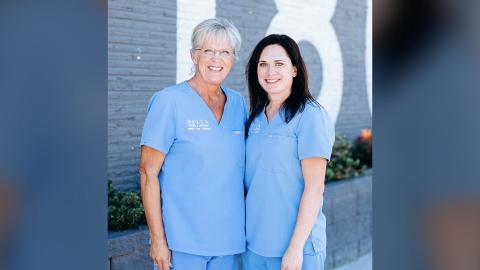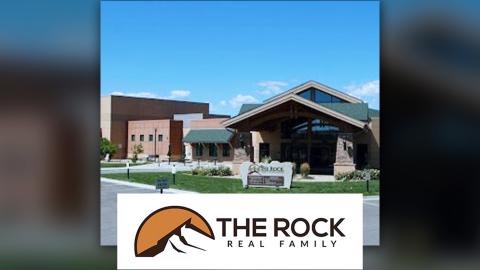
Catholic Health Clinic Challenges Colorado Abortion Reversal Pill Ban: 'Life is Worth Protecting'
A Catholic healthcare clinic is challenging a Colorado law that bans pro-life clinics from giving women a natural hormone to reverse the effects of the abortion pill and save a baby's life.
Catholic mother and daughter nurse practitioners Dede Chism and Abby Sinnett founded Bella Health and Wellness, a "life-affirming, dignified healthcare" facility for men, women, and children.
Bella is one of many healthcare clinics across the nation that offers progesterone—a naturally occurring hormone that is essential to the maintenance of a healthy pregnancy—to women at risk of miscarriage.
"We founded Bella because we believe that the miracle of life is worth protecting at every stage and in every circumstance," said Chism and Sinnett. "Under our care, mothers who choose life have access to a safe treatment that increases the chances they will give birth to healthy babies. I pray that we will be able to continue this life-saving ministry to women who come to us in need of help."
But earlier this year, Colorado passed a law that prohibits clinics, like Bella, from offering progesterone when seeking to reverse the effects of the abortion pill.
Bella filed a lawsuit requesting that a federal court block the law and protect its ability to help pregnant women in need of life-saving care.
In April, Colorado agreed to put the law on hold until three state medical boards weighed in on the safety of abortion pill reversal.
During that time, Bella successfully helped multiple women continue their pregnancies, including one who recently gave birth to a healthy baby.
However, despite evidence of progesterone's safety and efficacy, the state moved to ban it.
Now, Chism and Sinnett say they run the risk of losing their medical licenses and being liable to pay $20,000 per violation if they continue their ministry to pregnant women who seek their help.
Becket Law, a non-profit legal group, is representing Chism and Sinnett, and attorneys say the law targets pro-life clinics like Bella by making it unprofessional conduct to offer women progesterone when seeking to reverse the effects of the abortion pill.
"Colorado is forcing women to continue unwanted abortions and punishing the doctors who help them safely continue their pregnancies," said Rebekah Ricketts, counsel at Becket. "It is outrageous and wrong for Colorado to deprive these women of their ability to choose life, and to ban faith-based clinics like Bella from serving them."
As CBN News reported, California's attorney general filed a lawsuit against two major pro-life pregnancy centers in September to stop them from advertising abortion pill reversal services, claiming that the natural hormone used to reverse the abortion pill is "risky" and "has no credible scientific backing."
However, according to RealOptions, a faith-based pregnancy outreach center, a pregnant woman's body produces the natural hormone progesterone to sustain a pregnancy. In chemical abortions, the drug Mifepristone blocks progesterone and starves the baby to death. The abortion pill reversal protocol consists of giving extra progesterone within 72 hours after taking Mifepristone to "outnumber and outcompete" the abortion drug so the baby can survive.
The Abortion Pill Rescue Network (APRN) website shares that there is a 64-68% success rate for woman who follow their protocol adding that "thousands of lives have been saved."
***Please sign up for CBN Newsletters and download the CBN News app to ensure you keep receiving the latest news from a distinctly Christian perspective.***




